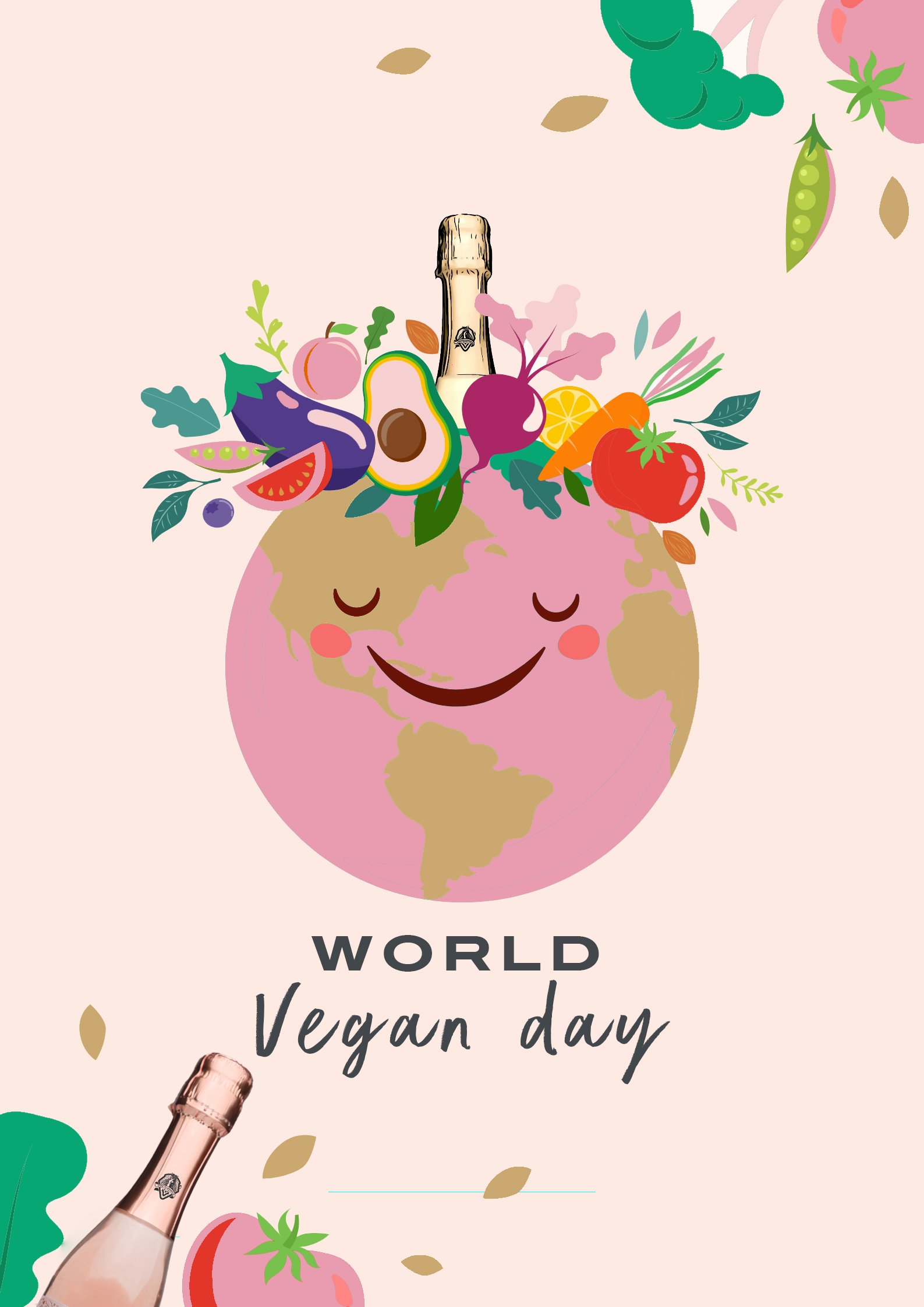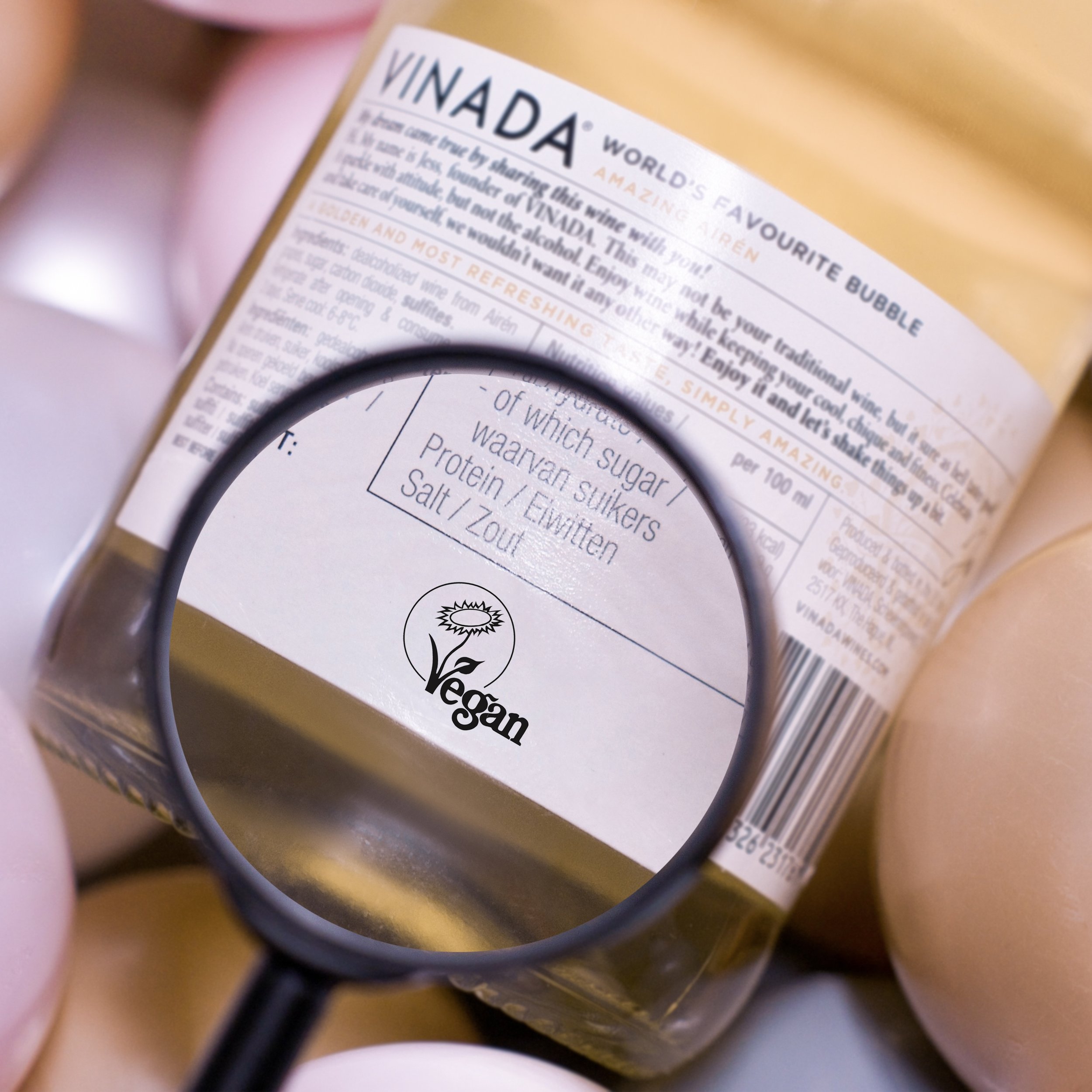Blog #10: VEGAN? ISN'T ALL WINE VEGAN?
What!? Isn’t all wine vegan? Spoiler Alert!
As we all know, wine is made from grapes. So you would think wine MUST be Vegan, right? The wine itself is completely fruit-based. However, it’s the production process, specifically, the technique used for clarification and fining, that prevents every wine from being called ‘vegan friendly’….. Explore this, and more ins and outs, today on WORLD VEGAN DAY! p.s. Don’t worry VINADA is 100% Vegan ;-)
From Vegan to Non-Vegan
So, when exactly does vegan wine turn into non-vegan wine? This happens when non-vegan fining agents are used during clarification.
Before we hop onto the fining agents, let’s share a quick summary about the fermentation proces. The most vital part of the production of wine. When the grapes are turned into grape must, the fermentation proces can start. Fermentation is the part where the natural sugars of the grapes are converted into alcohol. Fermentation requires the action of yeasts to convert the sugars into alcohol. After the fermentation process, the grape must be turned into wine. Young wines contain tiny molecules such as proteins, tartrates, tannins and phenolics. These molecules cause the wine to be hazy in appearance. We wine-drinkers like our wines to be clear and bright. This is where the fining agents come in.
Fining Agents
Fining agents help to remove these haze-causing molecules. The fining agent acts like a kind of magnet. It attracts the molecules around it. They coagulate around the fining agent, creating fewer but larger particles, which can then be more easily removed.
Many of the fining agents that were traditionally used contained animal products. With the most common ones: albumin (egg whites), gelatin (animal protein), casein (a milk protein), and isinglass (fish bladder protein). In traditional winemaking, once the fining process has been complete, the agents used are removed. These are known as processing aids with no additives, so they won’t be listed on a wine label. Due to the nature of wine, sometimes tiny traces of the animal product can be absorbed…so they won’t ‘leave’ the wine completely.
VI-NA-VEGAN
The desire for a natural approach is rising. Many winemakers nowadays already use clay-based fining agents such as bentonite and charcoal. Vegan wine is completely free from any animal-derived ingredients or production methods involving animal products. Vegan wines can be identified by the vegan logo.
VINADA uses bentonite and vegetable proteins. Bentonite is a swelling clay named after its main place of discovery, Fort Benton in the US state of Montana. Bentonite is of volcanic origin and consists mainly of the mineral montmorillonite from the group of aluminium silicates. Vegetable proteins are made from beans or peas, the proteins are used for fining and replace gelatine, which was formerly used but is obviously not allowed for Vegan wines due to animal origin.
So yes all our wines are 100% vegan!
Cheers
Love,
Roos


